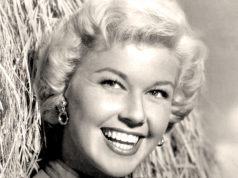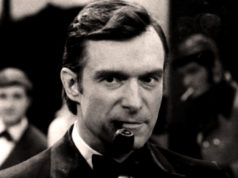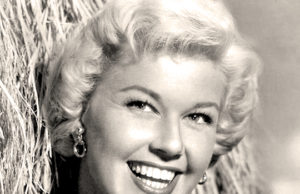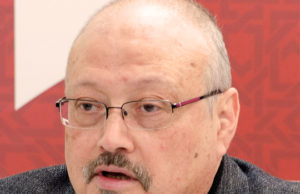Needpix / CC-BY-SA-3.0 / GFDL
Elizabeth Taylor
(Actress)
27 February 1932 – 23 March 2011 (Aged 79)
Taylor was a legendary British-American actress who was a star of classical Hollywood cinema, and one of the first modern celebrities, with her private life attracting intense public interest.
Beginning her career as a child actress in the early 1940s, she went on to win Academy Awards for her roles in Butterfield 8 in 1960 and Who’s Afraid of Virginia Woolf? in 1965.
In 1963, Taylor was paid a then record-breaking $1 million to play Cleopatra, the most expensive film made up to that point.
A fashion icon, with stunning looks, Taylor was married eight times to seven men, twice, famously, to Welsh actor Richard Burton. She also became the first celebrity to launch their own brand of perfume.
Taylor became one of the first celebrities to take part in HIV/AIDS activism, co-founding the American Foundation for AIDS Research, and founding the Elizabeth Taylor AIDS Foundation in 1991.
Born with scoliosis, Taylor broke her back while filming National Velvet in 1944.
In December 1983, she checked into the Betty Ford Center for alcohol and prescription medication addiction, becoming the first celebrity to openly admit herself there.
In 1993, Taylor received the American Film Institute’s Life Achievement Award, and the Institute also named her the seventh-greatest female screen legend at the turn of the 20th century.
From the early 1990s until her death, she dedicated her the majority of her time to philanthropy. Taylor died from heart failure at the age of 79.
Steve Jobs
(Inventor/Designer)

24 February 1955 – 5 October 2011 (Aged 56)
Jobs was an American entrepreneur, best known as the co-founder of Apple Inc with Steve Wozniak.
He is widely recognized as a technological, leading to the microcomputer revolution, iTunes, the iPhone, the iPod, and the iPad.
In 1972, Jobs dropped out of Reed College, before going on to travel through India seeking enlightenment and studying Zen Buddhism.
In 1976, Jobs and Wozniak co-founded Apple to sell Wozniak’s Apple I personal computer.
They sold the Apple II a year later, which became one of the first highly successful mass-produced personal computers.
After being fired from Apple, Jobs went on to become chairman of Pixar, a member of The Walt Disney Company’s board of directors and founded NeXT.
When Jobs returned to Apple in 1997, he revived the company from the verge of bankruptcy.
Together with designer Jony Ive, they developed a line of revolutionary products, which began with the iconic “Think different” advertising campaign.
In 2007, Fortune magazine named Jobs the most powerful person in the business world. Jobs died from pancreatic cancer at the age of 56.
Kim Jong Il
(North Korean Dictator)

16 February 1941 – 17 December 2011 (Aged 70)
Kim was the second Supreme Leader of North Korea, ruling from his father Kim Il-sung’s death in 1994 until his own death in 2011.
Among the titles Kim inherited was the Supreme Commander of the Korean People’s Army, the fourth-largest standing army in the world.
During Kim’s rule, the country suffered famine and had a poor human rights record.
Kim involved his country in state terrorism and strengthened the role of the military, while he also saw tentative economic reforms,
In April 2009, North Korea’s constitution was amended to refer to him and his successors as the “supreme leader of the DPRK”.
After his death from heart failure, Kim was designated the “Eternal General Secretary” of the WPK and the “Eternal Chairman of the National Defence Commission”.
He was succeeded by his son, Kim Jong-un.
Osama bin Laden
(Al Qaeda Leader)
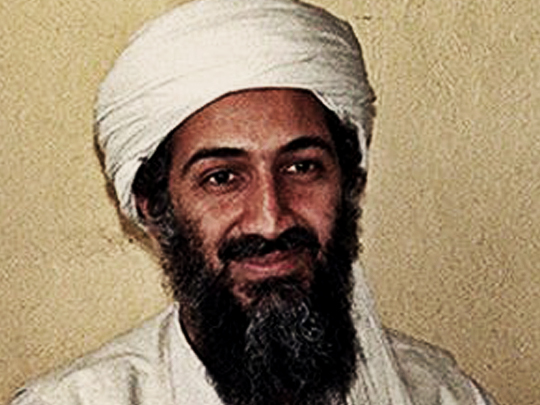
10 March 1957 – 2 May 2011 (Aged 54)
Bin Laden was an Islamic extremist who founded the militant organization, al-Qaeda, who planned the September 11 attack on the World Trade Center and the 1998 U.S. embassy bombings.
From a wealthy Saudi Arabian family, Bin Laden joined Mujahideen forces fighting against the Soviet Union in Afghanistan in 1979.
He helped to fund them by funneling arms, money and fighters from the Arab world into Afghanistan.
During this period, Bin Laden gained popularity among many Arabs, and following the Soviet withdrawal, he formed al-Qaeda.
In 1992, he was banished from Saudi Arabia and shifted his base to Sudan until forced to leave Sudan in 1996.
After establishing a new base in Afghanistan, Bin Laden declared war against the United States, initiating a series of attacks, which landed Bin Laden on the FBI’s lists of Ten Most Wanted Fugitives and Most Wanted Terrorists.
Under his leadership, Bin Laden and al-Qaeda were responsible for the deaths of 2,977 victims on September 11, 2001, as well as many other mass-casualty attacks worldwide.
On May 2, 2011, Bin Laden was killed inside a compound in Abbottabad, Pakistan, during a covert operation conducted by members of U.S. Navy Seal Team Six, and the U.S. intelligence services, on the orders of U.S. President Barack Obama.
Betty Ford
(Activist)
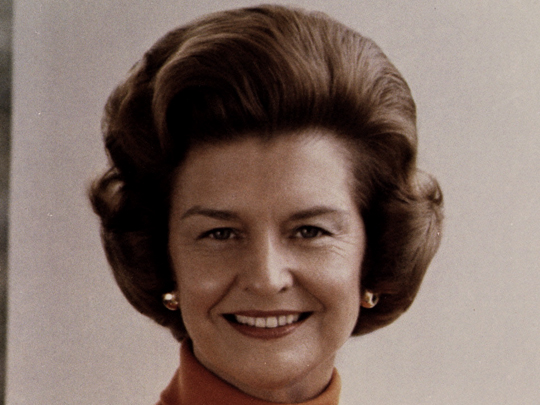
8 April 1918 – 8 July 2011 (Aged 93)
Ford was the First Lady of the United States from 1974 to 1977, as the wife of the 38th President of the United States, Gerald Ford.
As First Lady, she was active in social policy and created the Betty Ford Center for addiction.
In her role as First Lady, Ford raised breast cancer awareness following her own mastectomy, while also being a vocal supporter of the Equal Rights Amendment, being Pro-choice on abortion and was a leader in the Women’s Movement.
Renowned as one of the most candid first ladies in U.S. history, Ford also raised awareness of addiction when she announced her battle with alcoholism and substance abuse in the 1970s, becoming the first First Lady to do so.
In 1982, after her own recovery, Ford established the Betty Ford Center in Rancho Mirage, California, for the treatment of chemical dependency, on which she served as chair of the board of directors.
In recognition of her life’s work, Ford was awarded the Congressional Gold Medal and the Presidential Medal of Freedom.
Betty died of natural causes at the age of 93.
Sidney Lumet
(Director)
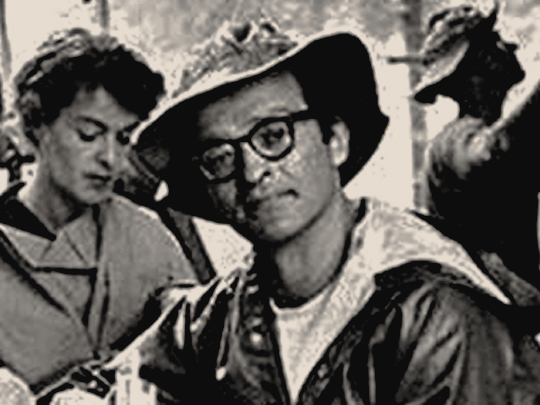
25 June 1924 – 9 April 2011 (Aged 86)
Lumet was a renowned American director responsible for films such as 12 Angry Men, Serpico, Murder on the Orient Express, Dog Day Afternoon, Running on Empty, Network, and The Verdict.
During World War II, he served for three years with the U.S. Army as a radar repairman stationed in India and Burma, from 1942 to 1946.
Afterward, Lumet returned to his interest in film and became involved with the Actors Studio, before forming his own theater workshop.
In 1957, his first movie, 12 Angry Men, was a critical success and established Lumet’s directing credentials.
Lumet received an Academy Award for Lifetime Achievement in 2005, his first individual Academy Award, despite numerous nominations.
Lumet died in his Manhattan home from lymphoma at the age of 86.
Christopher Hitchens
(Journalist)
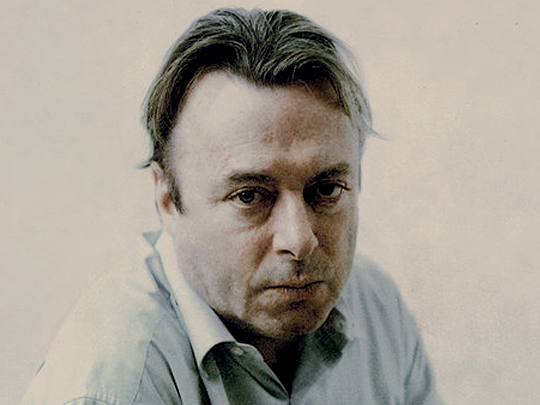
13 April 1949 – 15 December 2011 (Aged 62)
Hitchens was a controversial British-American journalist who was one of the leading intellectual writers of the late 20th and early 21st centuries.
Renowned for his controversial positions on matters such as religion, art, politics, war, and literature, Hitchens’ writings include critiques of public figures Bill Clinton, Henry Kissinger, Mother Teresa and Diana, Princess of Wales.
An advocate for the separation of church and state, Hitchens regarded concepts of a supreme being as a totalitarian belief that impeded individual freedom, arguing instead, in favor of free expression and scientific discovery.
The assertion “What can be asserted without evidence can be dismissed without evidence” has become known as Hitchens’s razor.
A heavy smoker and drinker since his teenage years, Hitchens died from pneumonia while undergoing treatment for oesophageal cancer at the age of 62. In accordance with his wishes, his body was donated to medical research
Amy Winehouse
(Singer)

14 September 1983 – 23 July 2011 (Aged 27)
Winehouse was an English singer-songwriter best known for her 2006 album Back to Black, which earned her five Grammy Awards, making her the first British woman to win five Grammys.
Among her best-known songs are “Stronger Than Me,” “Rehab,” “Back to Black”, “Love Is a Losing Game,” and “Valerie.”
At age 16, Winehouse got her big break in the music business when a classmate passed on her demo tape to a record label. Her 2003 debut album, Frank, was a critical success in the UK and was nominated for the Mercury Prize.
Sadly, Amy’s huge musical talent came to be overshadowed by her troubled personal life. A tumultuous, on-again-off-again relationship with her ex-husband, along with ongoing problems of drugs, alcohol and physical abuse.
Winehouse died of alcohol poisoning at the age of 27. The critically acclaimed documentary, Amy, about her life and career received an Academy Award in 2016 for best documentary.
Peter Falk
(Actor)
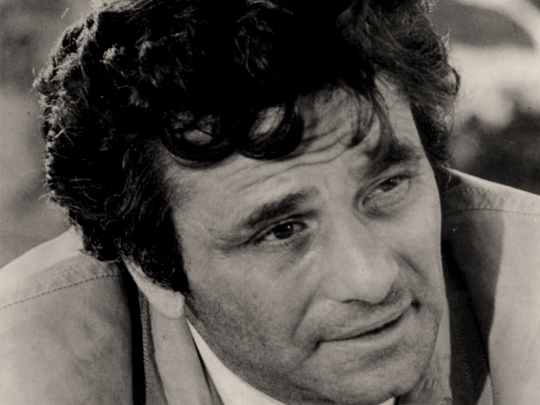
16 September 1927 – 23 June 2011 (Aged 83)
Falk was a much-loved American actor, best-known for his role as Lieutenant Columbo in the long-running television series Columbo, which ran from 1968 to 2003.
After losing his right eye to cancer at the age of three, Falk wore a glass eye in its place, which gave him his trademark squint.
At the age of 29, Falk abandoned public service for the stage, moving to New York City and making his off-Broadway debut in 1956.
Among the films he starred in are Murder, Inc., Pocketful of Miracles, It’s a Mad, Mad, Mad, Mad World, A Woman Under the Influence, Murder by Death, and The Princess Bride.
In 1961, he was the first actor to be nominated for an Academy Award and an Emmy Award in the same year, repeating the feat the following year also.
In his role as Columbo, Falk won four Primetime Emmy Awards in 1972, 1975, 1976, and 1990, as well as a Golden Globe Award in 1973.
In his later years, Falk’s health declined as he suffered from dementia and Alzheimer’s disease, before dying at the age of 83. He is widely regarded as one of the greatest TV stars of all time.
Muammar Gaddafi
(Libyan Dictator)
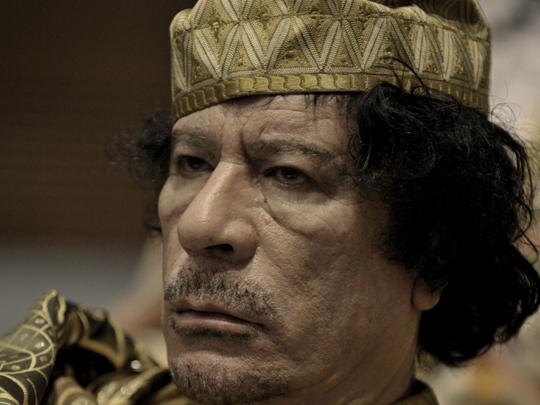
7 June 1942 – 20 October 2011 (Aged 69)
Gaddafi was a Libyan revolutionary and politician, who ruled Libya for over 40 years, from 1977 to 2011, having deposed the ruling monarchy in a 1969 coup.
Ruling by decree, Gaddafi ejected the Italian population and Western military bases from Libya, while he strengthened ties to Arab nationalist governments and unsuccessfully advocated Pan-Arab political union.
Gaddafi nationalized the oil industry using the growing state revenues to bolster the military, he funded foreign revolutionaries and implemented social programs, healthcare, and education projects.
Libya’s unsuccessful conflicts with Egypt and Chad, responsibility for the Lockerbie bombing, and support for terrorist groups left Gaddafi’s Libya increasingly isolated on the world stage and resulted in UN-imposed economic sanctions.
The 2011 Arab Spring saw protests breakout against widespread corruption and unemployment in eastern Libya, leading to a civil war, which resulted in Gaddafi’s government being overthrown, before he was captured and killed in his hometown of Sirte.
Gaddafi dominated Libya’s politics for four decades, earned praise for his anti-imperialist stance, support for Arab and African unity, and for the significant improvements, he brought to the Libyan people’s quality of life.
However, Islamic fundamentalists strongly opposed his social and economic reforms. He was widely condemned as a dictator whose authoritarian rule had violated human rights and financed global terrorism.
Andy Rooney
(Journalist)
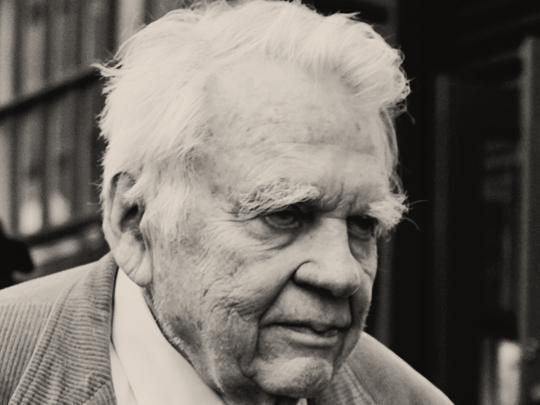
14 January 1919 – 4 November 2011 (Aged 92)
Rooney was an American radio and television writer who was best known for his weekly broadcast “A Few Minutes with Andy Rooney”, as part of CBS News’ 60 Minutes from 1978 to 2011.
During World War II, Rooney wrote for the Army’s Stars and Stripes newspaper, becoming one of the first American journalists to visit and write about the German concentration camps.
In recognition for his service as a war correspondent in combat zones during the war, Rooney was decorated with the Bronze Star Medal and Air Medal.
Rooney joined CBS in 1949 as a writer for Arthur Godfrey’s Talent Scouts and then The Garry Moore Show. In 1968, he joined the staff of the new CBS current affairs program 60 Minutes.
During his career, Rooney won three Emmy Awards for his essays, before being awarded the Emmy Lifetime Achievement Award in 2003.
On October 2, 2011, Rooney’s final appearance on 60 Minutes was aired. He died one month later from complications following surgery at the age of 92.
Joe Frazier
(Boxer)

12 January 1944 – 7 November 2011 (Aged 67)
Frazier, nicknamed “Smokin’ Joe”, was an American professional boxer who reigned as the undisputed heavyweight champion from 1970 to 1973, also winning a gold medal at the 1964 Summer Olympics.
In 1971, as the reigning heavyweight champion, Frazier defeated Muhammad Ali by unanimous decision in what was billed as the Fight of the Century. Two years later, Frazier lost his title after he was defeated by George Foreman.
In 1975, Frazier’s last world title challenge came when he was beaten by Ali in their world famous bout, the Thrilla in Manila. He retired in 1976 following a second loss to Foreman.
Named as Fighter of the Year three times during his career, The Ring magazine ranked Frazier as the eighth greatest heavyweight in boxing history in 1999. He was inducted into both the International, and World, Boxing Halls of Fame.
Throughout his career, Frazier lost to only two fighters, twice to Muhammad Ali, and twice to George Foreman. Frazier died from liver cancer at the age of 67.
During Ali’s three-year layoff from boxing for refusing to be drafted into the US Army, Frazier lent him money, testified before Congress and petitioned U.S. President Richard Nixon to have Ali’s right to box reinstated.
However, prior to their bout in 1971, Ali called Frazier an “Uncle Tom”, among other personal insults, turning many black Americans against Frazier. It led to years of bad blood between the two before they eventually reconciled in their final years.
Wangari Maathai
(Activist)
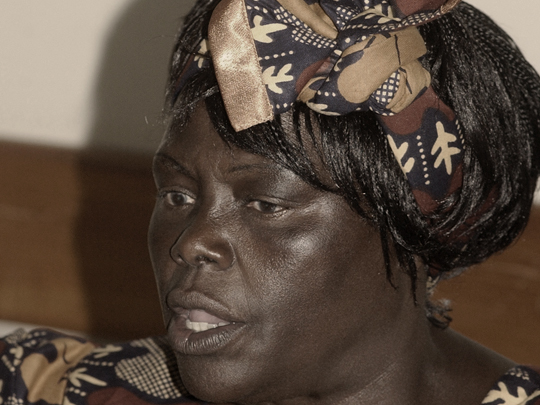
1 April 1940 – 25 September 2011 (Aged 71)
Maathai was a Kenyan environmental political activist who became the first African woman to win the Nobel Peace Prize, in recognition of her life’s work in 2004.
In 1971, Maathai became the first Eastern African woman to receive a Ph.D., her doctorate being in veterinary anatomy, from the University of Nairobi. Maathai then became the director of the Nairobi branch of the Kenya Red Cross Society in 1973.
In 1977, Maathai founded the Green Belt Movement, an environmental non-governmental organization focused on the planting of trees, environmental conservation, and women’s rights.
A protest organized by Maathai in Nairobi’s Uhuru Park prevented a skyscraper’s construction in 1989. The place in the park where she demonstrated has became known as “Freedom Corner.”
Among the initiatives she was involved in, Maathai spearheaded the United Nations Billion Tree Campaign and was one of the founders of the Nobel Women’s Initiative.
Maathai received numerous awards during her life, including France’s Legion of Honour in 2006 and the World Citizenship Award in 2007. Wangarĩ Maathai died from ovarian cancer at the age of 71.
Václav Havel
(Czech President/Playwright)
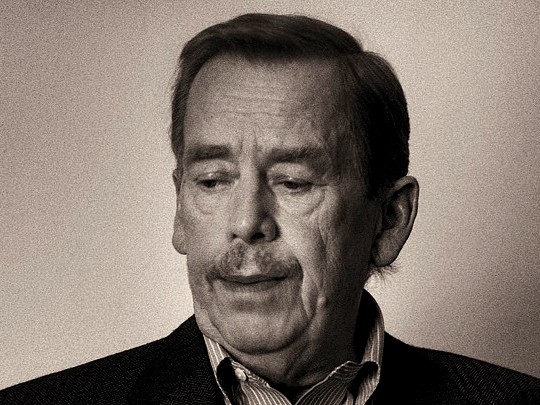
5 October 1936 – 18 December 2011 (Aged 75)
Havel was a Czech politician and playwright, who served as the last President of Czechoslovakia before its’ dissolution from 1989 to 1992 and then as the first President of the Czech Republic from 1993 to 2003.
As a writer, Havel’s plays used an absurdist style to explore the moral compromises that characterized life under a totalitarian system, however, after the Soviet Union’s clampdown on Czechoslovakia, his plays were banned.
After participating in the Prague Spring in 1968, Havel found himself blacklisted following the Soviet invasion of Czechoslovakia in late 1968. He subsequently became more politically active, helping to found several dissident initiatives.
The Soviet secret police kept Havel’s political activities under surveillance, resulting in multiple stints in prison, the longest being almost four years, between 1979 and 1983.
In 1989, Havel’s Civic Forum movement played a key role in the Velvet Revolution that ousted communism from Czechoslovakia. As president, Havel was instrumental in dismantling the Warsaw Pact and in expanding NATO membership eastward.
Havel received numerous accolades from countries around the world in recognition of his life’s work, including the U.S. Presidential Medal of Freedom and France’s Legion of Honour.
Prague’s international airport was renamed the Václav Havel Airport Prague in 2012. Havel died at the age of 75 in his Czech country home.



